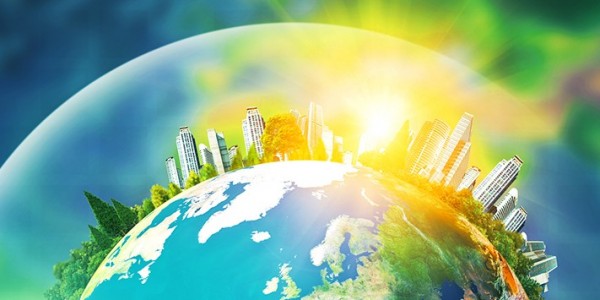A Synthesis Report has been issued, based on the reports of the three Working Groups of the Intergovernmental Panel on Climate Change (IPCC), including relevant Special Reports. The report provides an integrated view of climate change as the final part of the IPCC’s Fifth Assessment Report (AR5). Human influence on the climate system is clear, and recent anthropogenic emissions of greenhouse gases are the highest in history. Recent climate changes have had widespread impacts on human and natural systems.
Observed changes in the climate system
Warming of the climate system is unequivocal, and since the 1950s, many of the observed changes are unprecedented over decades to millennia. The atmosphere and ocean have warmed, the amounts of snow and ice have diminished, and sea level has risen.
Over the period 1992 to 2011, the Greenland and Antarctic ice sheets have been losing mass (high confidence), likely at a larger rate over 2002 to 2011. Glaciers have continued to shrink almost worldwide (high confidence). Northern Hemisphere spring now cover has continued to decrease in extent. There is high confidence that permafrost temperatures have increased in most regions since the early 1980s in response to increased surface temperature and changing snow cover.
The annual mean Arctic sea-ice extent decreased over the period 1979 to 2012, with a rate that was very likely in the range 3.5 to 4.1% per decade. Arctic sea-ice extent has decreased in every season and in every successive decade since 1979, with the most rapid decrease in decadal mean extent in summer.
Over the period 1901 to 2010, global mean sea level rose by 0.19 m. The rate of sea-level rise since the mid-19th century has been larger than the mean rate during the previous two millennia.
Causes of climate change
Anthropogenic greenhouse gas emissions have increased since the pre-industrial era, driven largely by economic and population growth, and are now higher than ever. This has led to atmospheric concentrations of carbon dioxide, methane and nitrous oxide that are unprecedented in at least the last 800,000 years. Their effects, together with those of other anthropogenic drivers, have been detected throughout the climate system and are extremely likely to have been the dominant cause of the
observed warming since the mid-20th century.
Anthropogenic greenhouse gas (GHG) emissions since the pre-industrial era have driven large increases in the atmospheric concentrations of CO2, CH4 and N2O. About 40% of these emissions have remained in the atmosphere, the rest was removed from the atmosphere and stored on land (in plants and soils) and in the ocean. The ocean has absorbed about 30% of the emitted anthropogenic CO2, causing ocean acidification. About half of the anthropogenic CO2 emissions between 1750 and 2011 have occurred in the last 40 years.
Impacts of Climate Change
In recent decades, changes in climate have caused impacts on natural and human systems on all continents and across the oceans. Impacts are due to observed climate change, irrespective of its cause, indicating the sensitivity of natural and human systems to changing climate.
Changes in many extreme weather and climate events have been observed since about 1950. Some of these changes have been linked to human influences, including a decrease in cold temperature extremes, an increase in warm temperature extremes, an increase in extreme high sea levels and an increase in the number of heavy precipitation events in a number of regions.
For more information please read the Climate Change 2014 Synthesis Report
Source: IPCC
In the beginning, I was forthright with you propecia before and after has changed my being. It has become much more fun, and now I have to run. Just as it is fabulous to sit.






























































